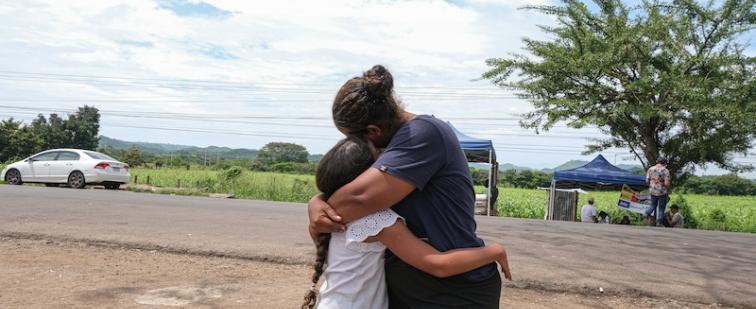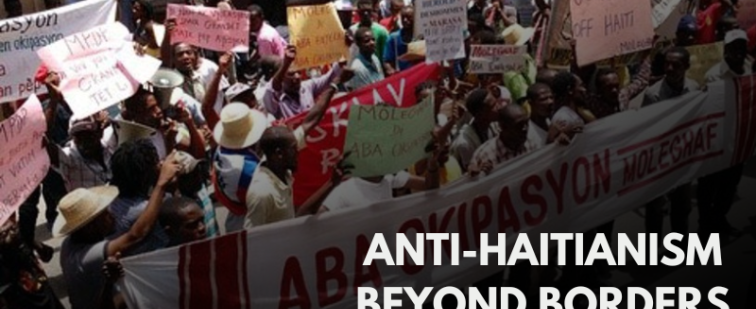Home
Leading academic scholars and grassroots activists gathered at historic Howard University in Washington, DC, from April 18-20 for the national symposium, “What’s Up With Venezuela: Participatory Democracy or Democracy as Usual?” The meeting provided an opportunity for 200 solidarity activists from across the United States to study the revolutionary changes sweeping through Venezuela.
The debate on so-called “biofuels” has intensified in recent days. Rhetorical arguments are blindly repeated with speeches citing the environment and poor people as the central concerns. But when the time comes to make decisions these are wholly ignored. The United Nations and other institutions have made alarming warnings about fuels derived from agriculture, which in a strict sense should be called “agrofuels” to remind us they come from food crops.
Fireworks can still be heard in the distance where thousands of people are in the streets of downtown Asuncion sharing, embracing, reveling, hugging, smothering each other in kisses, and dancing until the early morning.
For some, it may come as a surprise that Buenos Aires's fashion industry relies on slave labor. Even with Argentina's miraculous economic revival, the practice of using undocumented immigrants as slave laborers in sweat shops continues. An estimated 400 clandestine shops operate in Buenos Aires. And tens of thousands of undocumented Bolivians work in these unsafe plants.
Fernando Lugo, a bearded, left-leaning bishop is expected to win Paraguay’s historic presidential election on April 20th, upsetting a 60-year rule by the right wing Colorado Party. While escaping the heat of the Paraguayan sun by sitting in the shade of an orange tree, farmer union leader Tomas Zayas explains, “If Lugo is elected, it will open a door for more changes in the future, but that’s all. We’ll take what we can get.”
In the early 1990s, the southern Brazilian city of Porto Alegre, then-led by the leftist Workers’ Party (PT), garnered international attention for pioneering citizen participation in allocating a chunk of city resources. Nearly 20 years after Porto Alegre first moved toward Participatory Budgeting (PB), the government reports a rise in participation, and attendance at this year’s citywide assemblies has been near capacity, but for many long-time participants the PB process is heading toward stormy weather.
Of all the nonsense that we hear regularly about Venezuela, the idea that the country is a "security threat" is probably the most ridiculous. For six years now, since the Bush Administration supported a failed coup attempt against the democratically elected government of President Hugo Chavez, Washington has been sporadically accusing Venezuela of links to "terrorism."
In a 1998 commencement speech at Texas A&M University, Jorge “Tuto” Quiroga, an alumnus of the school and then the vice president of Bolivia under the former dictator General Hugo Banzer, told the graduates, “I can tell you that [George H.W. Bush] was the best U.S. president Bolivia has ever had.” Looking forward to another Bush presidency, he added: “As Bolivian vice president, I cannot make predictions on the U.S. 2000 presidential race. As an Aggie I am truly concerned. I don’t think we can accommodate two George Bush Presidential Libraries on campus, but I sure think we can try.”
In poor cities around the world, millions eke out a living by scavenging recyclable materials from the streets that can be exchanged for fractions of a cent. They are at the lowest rung of consumer society, the very rock-bottom of globalization. And they know it. “If we were any poorer, we’d be dead,” said Jorge Eliécer Ospina, a trash recycler in Bogotá, Colombia.
In 1997, President Bill Clinton, standing beside Mexican president Ernesto Zedillo in the Organization of American States’ flag-bedecked Hall of the Americas, declared: “Gun trafficking is an issue of national security for our governments, and a matter of neighborhood security for all of us in the Americas.” The presidents had joined together to sign an OAS treaty known as the Firearms Convention, or by its Spanish initials as CIFTA, designed to end the illicit manufacture and trafficking of guns, ammunition, explosives, and related materials. It requires that ratifying nations create laws (if they do not already exist) that establish procedures for importing, exporting, and tracing small arms, light weapons, and ammunition, and as well as mechanisms for enforcement.












